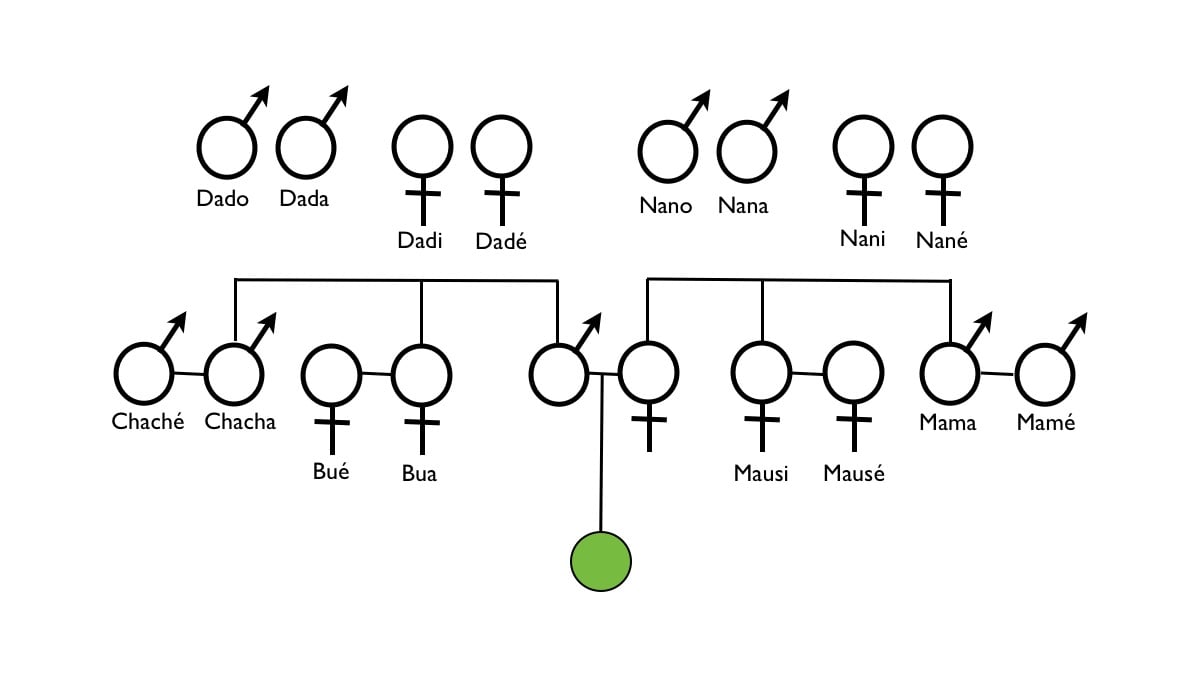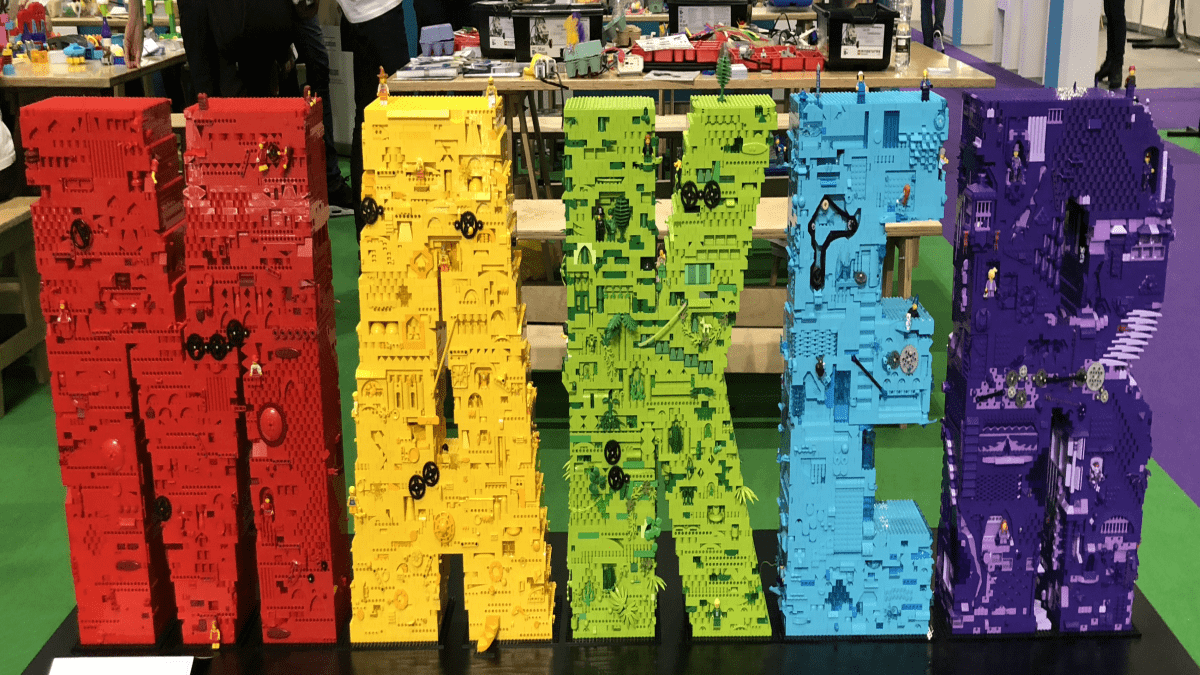
Back in September 2018, the Indian Supreme Court ruled that it is no longer illegal to be gay in India. And while culturally, this ruling may not shift people’s thinking into being more accepting of others, the LGBT community there finally has legal recourse against the hardships they’ve endured. It’s a great first step, but just one step. Looking forward to a time when Indian same-sex couples may legally be allowed to marry in India, I can’t help but wonder about the role language itself plays in cultural adaptation. And for that, I’d like to propose the gender-neutral “é.”
Hindi Language Gender Rules
Hindi is a very gender-specific language. The same word can be feminine or masculine based on the vowel at the end:
Ladkaa (pronounced luhd-kaa) means boy
Ladkee (pronounced luhd-kee) means girl
Chhotaa (adj.) means small, but only when paired with a masculine noun
Chhotee means small, but only paired with a feminine noun
So you’d say chhotaa ladkaa or chhotee ladkee.
And if you come across a random genderless word in Hindi (juthaa, which means shoe, really has no gender-specific properties), the last syllable tells you which adjective to apply. So you’d say meraa juthaa (my shoe) or meri topi (my hat).
Hindi Relationships
When it comes to family relationships, we don’t just have aunts and uncles. We have very specific names that spell out the exact relationship:
Maa = mother
Mama (pronounced maamaa) = mother’s brother
Mami (pronounced maamee) = mother’s brother’s wife
Mausi = mother’s sister
Mausa = mother’s sister’s husband
Nana (pronounced naanaa) = mother’s father
Nani (pronounced naanee) = mother’s mother
Papa = father
Chacha = father’s brother
Chachi = father’s brother’s wife
Bua = father’s sister
Phupha = father’s sister’s husband
Dada (pronounced dhaadhaa) = father’s father
Dadi (pronounced dhaadhee) = father’s mother
Didi or Jiji = elder sister
Jijaji = elder sister’s husband
Bhaiya = elder brother
Bhabhi = elder brother’s wife
(Yes, I know Bua totally breaks the grammatical construct, but don’t blame me; I didn’t make it up. Just stick with me here. And technically, I believe Jijaji is simply Jija + the ji added for respect, which is why my cousin affectionately calls my husband Jiju.)
So if your Mausi came home with her new wife, what would you call her? And if your Chacha brought home his husband? Yes, I get that it may be uncomfortable for some people to imagine (because, of course, this gay-vay business doesn’t happen in your family), so let’s just keep this discussion completely academic then, shall we?
If we follow the typical rules of Hindi grammar, then Mausi’s wife would be called Mausi. But that title is reserved for Mom’s sister, so the language itself doesn’t help clarify the relationship. We may as well just call her Aunty. But let’s not get extreme. Not when we have other vowels at our disposal.
The Gender-Neutral É for Indian Same-Sex Couples
I propose that we append an é (as in soufflé) to same-sex partners. Think about it. It resides in the middle ground sound-wise between EE and AA, and it offers a phonetically pleasing sound. Behold:
Mausé = mother’s sister’s wife
Mamé = mother’s brother’s husband
Chaché = father’s brother’s husband
Bué or Phuphé (either would work, really) = father’s sister’s wife
Jijé or jijéji = elder sister’s wife
Bhabhé = elder brother’s husband
What About Grandparents?
The only complication to utilizing the gender-neutral É comes at the grandparent level. If one of the perks of the Hindi language is its clarity, then any updated language scheme must maintain that level of clarity, as opposed to introducing further confusion. For that, I would suggest the use of O.
To spell out what I mean, here’s what we’d get if we simply applied the É:
Nani = Mom’s mom
Nané = Mom’s mom’s wife
Nana = Mom’s dad
Nané = Mom’s dad’s husband
Dadi = Dad’s mom
Dadé = Dad’s mom’s wife
Dada = Dad’s dad
Dadé = Dad’s dad’s husband
See the problem? Nané and Dadé each have two meanings. Which may not be a problem in most cases, but there is always the possibility. So instead, for this level, I would introduce the masculine O. Leading to:
Nano (pronounced naanoh) = Mom’s dad’s husband
Dado (pronounced dhaadhoh) = Dad’s dad’s husband
So that they aren’t confused with:
Nané (pronounced naanay) = Mom’s mom’s wife
Dadé (pronounced dhaadhay) = Dad’s mom’s wife
A Case for More Titles
Cultural acceptance of Indian same-sex couples will take time. But without a language to accommodate the very real people who will be affected by this cultural shift, it’s almost as if the language itself is refusing to acknowledge same-sex relationships. And while individuals are free to select other honorifics, it’d be nice for the language to offer a sturdy framework to stand on.



I LOVE this. Thank you for coming up with an elegant solution! I like the idea of having a Linguistic solution in place even in these likely to be long years before more acceptance comes. Let me play devils advocate and throw a wrench into your plans. My son is being raised by 2 moms: me and my wife. When we have grandchildren, who’s what name? Since I’m his primary caregiver, I’m claiming Dadi!
A completely new topic on the internet. I ran into her by accident. This is a BDSM contract. Let me explain now. They tweak the key features of your fetish, the maximum you are capable of. This is so that the partner does not cross the border of what is permissible and thereby does not offend you inadvertently.
I’ve always wondered how such people meet each other. There really aren’t that many.
Good day Peter. In general all is quite simple. Firstly, there are not so few people with such an orientation. And secondly nowadays you can use modern technologies to search partner. There are many special dating sites, like example check pof dating site review, as I know it is one of the best for LGBTQ dates.